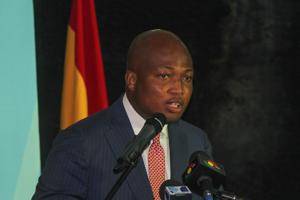
Ablakwa Breaks Silence on Airport Hills Residence
Newly appointed Foreign Affairs Minister, Samuel Okudzeto Ablakwa, has openly addressed concerns regarding his tenancy at Airport Hills, a high-end residential area in Accra. His decision to speak out comes after speculation and political discourse surrounding his place of residence.
In an exclusive interview on The KeyPoints, Ablakwa clarified that, although the Chairman of the Appointments Committee had dismissed queries about his living situation, he felt the need to proactively disclose all necessary details to maintain public trust.
Taking Steps for Transparency
To remove any doubts, Ablakwa took a bold step—writing to the facility’s management for official confirmation regarding his tenancy. In a formal request dated February 3, 2025, he sought verification of the property’s ownership and the exact terms of his lease agreement.
Why the Airport Hills Residency Matters
The conversation around Ablakwa’s residence gained momentum when some critics questioned whether his stay at Airport Hills aligned with his financial declarations and public service ethics. Political analysts suggest that, while public officials have the right to private accommodations, concerns about conflicts of interest and accountability often arise.
However, Ablakwa maintains that his actions are driven by a commitment to openness. He insists that public officials should lead by example, ensuring their dealings remain above board.
Public Reactions and Political Implications
Ghanaians have taken to social media to express mixed reactions. While some applaud Ablakwa’s willingness to be transparent, others believe the scrutiny is unnecessary.
Political experts note that this issue could influence public perception ahead of upcoming elections. Ablakwa’s stance on accountability and governance may either strengthen his reputation or invite further debates.
Final Thoughts
Samuel Okudzeto Ablakwa’s proactive approach to clarifying his tenancy status at Airport Hills reflects his dedication to transparency. Whether or not this will quell public curiosity remains to be seen, but one thing is certain—his decision to publicly address the matter demonstrates a growing demand for openness in Ghana’s political landscape.



No comments yet
Be the first to share your thoughts!